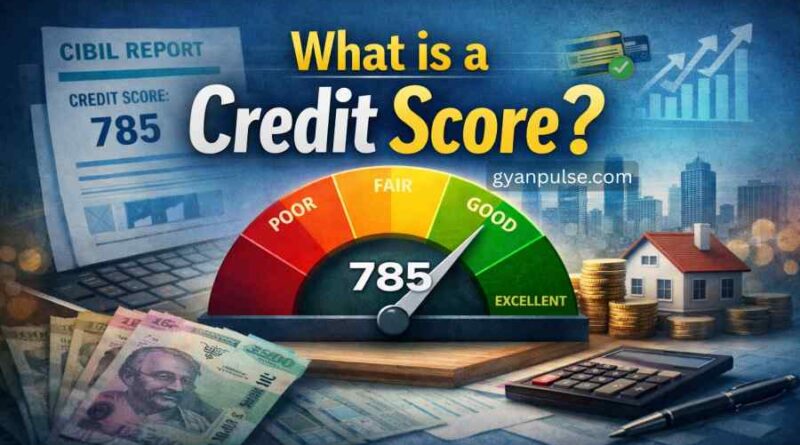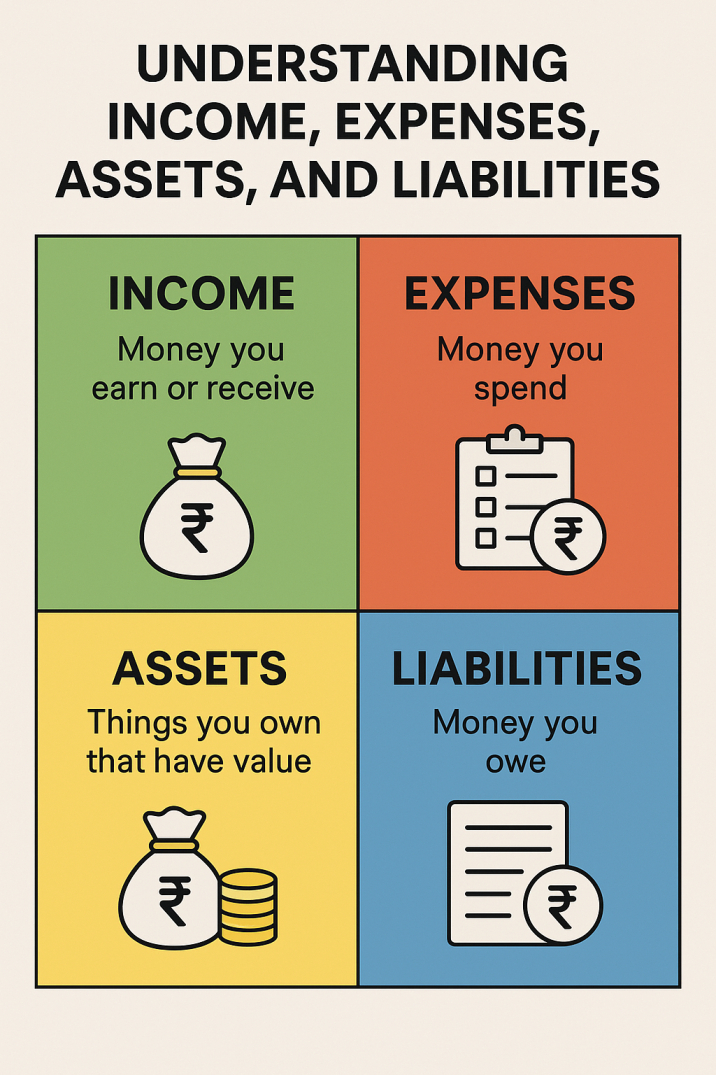What is a Credit Score in India and Why it is important and matters?
Learn What is a Credit Score in India its meaning, CIBIL score range, importance, impact on loans and simple tips to improve your score.
What is a Credit Score?
A credit score is a three-digit number that reflects your creditworthiness your ability and willingness to pay back debts. In India, this score generally ranges from 300 to 900, and the most popular scoring agency is the Credit Information Bureau (India) Limited, commonly known as CIBIL.
Your credit score is calculated based on your financial behavior, including your repayment history, existing loans, and credit utilization. A CIBIL score of 750 or more tells lenders that you’re a reliable borrower who can repay loans on time.
Table of Contents
Why Does a Credit Score Matter in India?
Your credit score in India has a big impact on your financial choices and opportunities. Banks and non-banking financial companies (NBFCs) check your CIBIL report before offering loans, credit cards, or mortgages. Here’s why it matters:
Better Loan Eligibility – Lenders prefer borrowers with a high score, which improves your chances of loan approval.
Lower Interest Rates – With a good CIBIL score, you can negotiate for lower interest rates, reducing the total cost of borrowing.
Credit Card Offers – Banks offer premium credit cards with perks to customers who maintain a good score.
Faster Processing – Lenders often give quick approvals to those with a high credit score.
What Factors Impact CIBIL Score?
Your CIBIL score is determined by several factors:
1. Repayment History (35% weightage) – Paying EMIs and credit card bills on time is critical.
2. Credit Utilization Ratio (30% weightage) – Using too much of your credit limit can negatively impact your score.
3. Length of Credit History (15% weightage) – Longer credit histories help establish reliability.
4. Credit Mix (10% weightage) – A balanced mix of loans (secured vs. unsecured) improves your score.
5. New Credit Enquiries (10% weightage) – Multiple loan applications in a short period can decrease your score.
How to Improve Your Credit Score
If your credit score is not up to the mark, don’t worry, you can improve it gradually. Follow these simple strategies:
- Pay Bills on Time
Make sure to pay your EMIs and credit card bills on or before the due date. - Reduce Credit Utilization
Try to use less than 30% of your total credit limit to keep your score healthy. - Avoid Multiple Credit Applications
Applying for loans or credit cards too often can lower your score. Apply for loans or cards only when truly needed. - Maintain a Healthy Credit Mix
Have a balance of secured loans (home loans, auto loans) and unsecured loans (personal loans, credit cards). - Check Your CIBIL Report Regularly
Download your free CIBIL report annually and check for errors or incorrect information that can lower your score.
Also Read: What is a Budget? How to Make a budget in 5 Easy steps
Role of Credit Bureaus in India
Credit bureaus like CIBIL, Experian, Equifax, and CRIF High Mark collect and analyze individuals’ credit data to generate scores. These institutions help lenders assess borrower risk and promote responsible lending, ensuring financial transparency and stability in India’s credit system.
Importance of Credit Awareness
Many people ignore their credit score until loan rejection happens. Regularly tracking your score helps you plan finances better, identify errors early, and maintain credit discipline. Being credit-aware empowers you to make smarter financial decisions and achieve long-term financial goals.
Common Mistakes That Can Hurt Your Credit Score
Even financially responsible individuals can unknowingly damage their credit score through small but repeated mistakes. Missing even a single EMI or credit card payment, exceeding your credit limit, or closing an old credit card account too quickly can negatively affect your score. Ignoring errors in your credit report or becoming a guarantor for someone who defaults can also lower your creditworthiness. Avoiding these common mistakes helps you maintain a strong and stable credit profile over time.
Summary
Your credit score in India, especially the CIBIL score, is your financial report card. Whether you want to buy a home, fund higher education, or manage short-term cash needs, a good score can help you access better deals and smoother approval processes. Keeping a good credit profile takes discipline – pay your bills on time, borrow only what you need, and check your credit report often. Start working on your credit score today and enjoy financial freedom!
Also Check: Finance
![]()




